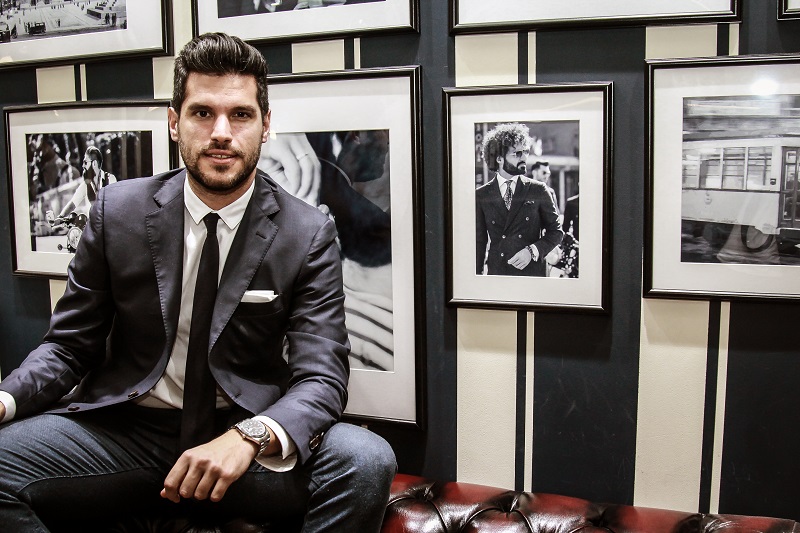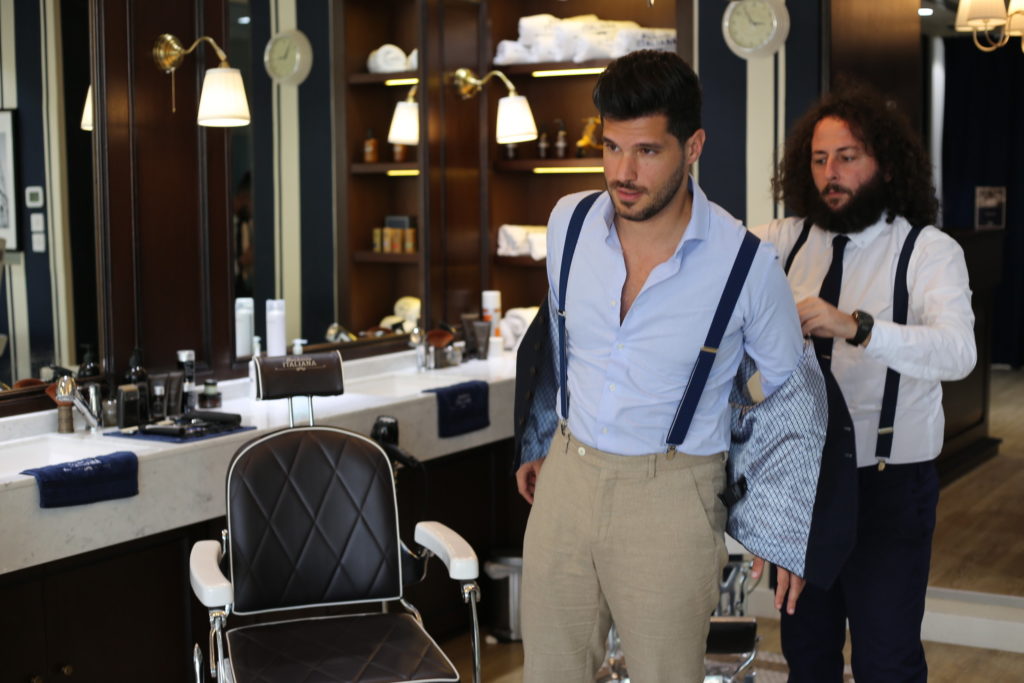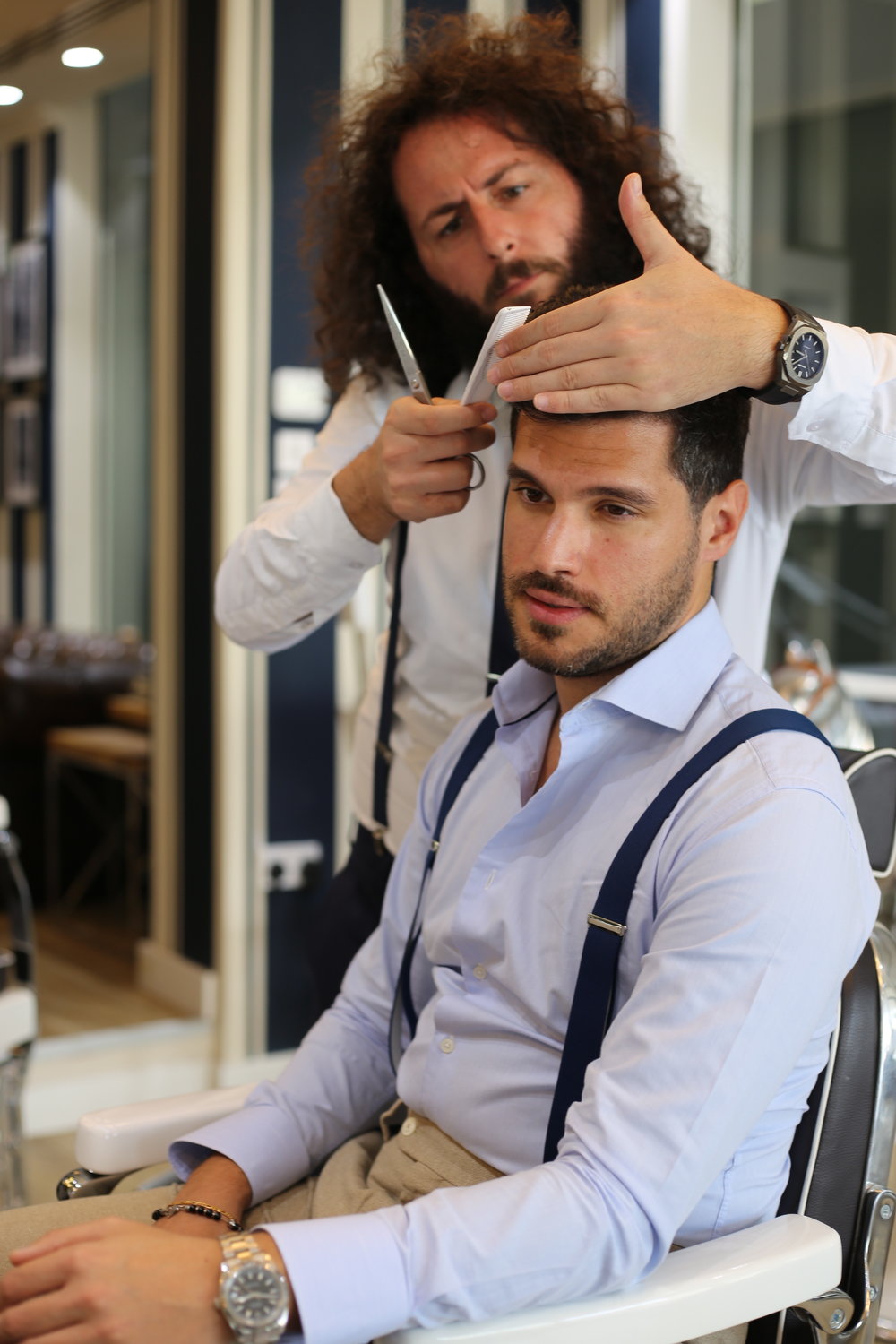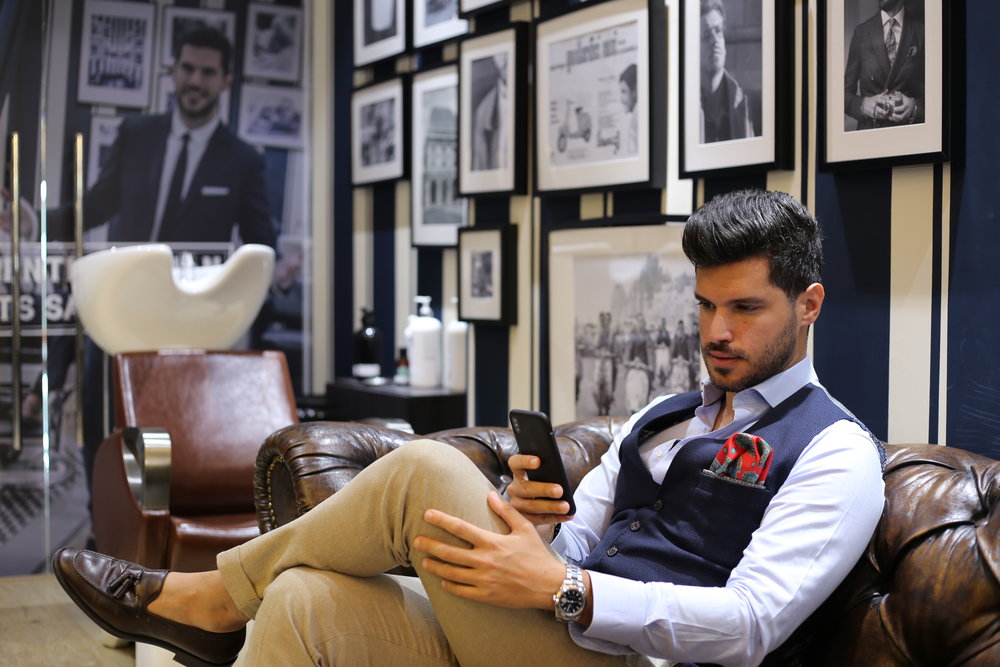Vincenzo Spina is the founder of Barberia Italiana, and a stone consultant and a building engineer from Carrara, a small town in Tuscany (famous for their unique marble). At just thirty years old, he is an entrepreneur, and possesses a wealth of knowledge in marketing and business development.
The Pemberley: Tell me about yourself.
Vincenzo Spina: I was always interested in marketing. When I was about fifteen, I opened my first company together with a friend of mine and we owned the second biggest blog network in Italy, operating 10-20 blog networks covering football, music, cinema, motor sports and cars. I then started to learn about strategic marketing, especially brand positioning. When I was eighteen, some friends asked me to help them with their businesses, so I opened my first marketing agency while I was studying at university.
TP: What led you to create a barbershop?
VS: One of my clients was a hairdresser who wanted to develop business courses to help hairdressers sell products to their clients. Eventually she decided to open a barbershop, which we founded together. At the time, everyone in Italy was using the idea of the American style hipster barber shop, but knowing that Italians appreciate style and elegance, I positioned the company as a classic barbershop. I knew that this would also eventually make it easier to open branches worldwide.
When I moved to Dubai, my brother started to work with us, and last January, my partner left the company. Although I’m not a hairdresser— I was the first client of the barber shop, and I know what I’m looking for— this is the quality I want for my customers as well.
TP: Do you have stores everywhere?
VS: We have one in Cremona, two in Dubai (Mercato Mall and Dubai Marina) and soon another location opening in DIFC. We are also opening in Hong Kong.
TP: These are very different cultures. How did you manage to figure out what people wanted in each place and keep the same brand?
VS: Location changes the technical part of the business because in every market male grooming means something different— in Italy it’s more about the beard, whereas in Hong Kong there aren’t too many beards. But what we sell is the experience of being inside an Italian space— we always recreate the Italian atmosphere. Back in the day, a barbershop in Italy was a place for men to hang out together, a place to chat, and have a coffee.
TP: How many chairs do you have?
VS: We have between two and four in our locations. I don’t have many chairs, because the idea is to first lounge on the sofa and enjoy your espresso. I created a place where a man can unwind and get some time for himself, because we live in a world where everyone is rushing, and we don’t get a chance to enjoy ourselves. Especially in Dubai, men need time in the barbershop for themselves, to switch off their phone and relax. There are many barbershops in Dubai to get haircut and trim, but it’s very quick and they send you off. At our place, you can come and enjoy. It’s like a lounge.
TP: What are your plans for the future of the business?
VS: Hopefully we can extend the experience in Dubai (such as serving alcohol to our customers). Many Italian tailors have also asked me if we can host a trunk show in our space. The plan is first to increase the retail part of the business and to have a shop for men only grooming products including haircare, hairstyle, body care, etc. At the same time, I want it to be a place where people can hang out and attend events with a range of Italian specialties such as cigars, wine, tailoring, and more.
TP: Tell me about your style. Who makes your suits?
VS: I have one Italian tailor here, from Tuscany actually, whose shop is in the Westin Hotel in Dubai Marina. Managing my role as store consultant can be complicated— I have meetings, I need to visit building sites, attend events and I spend time at the barbershop— so I try to wear clothes that can be versatile, like trousers and a jacket. I don’t always wear a suit.
TP: Do you keep a spare pair of shoes in your trunk?
VS: Yes, I do.
TP: What do you love about Italian style and culture?
VS: I think Italian elegance is very simple; we just play with some details (compared to English elegance which is a bit too heavy for me).
TP: In the early part of the last century, beards were known as a statement of the wealthy, and now again it’s viewed as a sign of elegance. Where do you think the future of hair care is heading?
VS: I think it’s not just about hair care, but the cosmetic industry for men is growing in general. The industry is developing, because I think we are losing the idea that to be a man you need to be rugged, and slowly men are realizing they need to take care of themselves (even using anti-aging creams, for example). For me personally, grooming has become easier because now my salon is next door to my building. I take care of my beard three times a week, and I cut my hair every 10-14 days. I use many products, including a specific shampoo and conditioner (I had never used conditioner until 2-3 years ago), and I also do keratin treatments occasionally because my hair is a bit wavy.

TP: Why does appearance matter?
VS: When you enter a room, your look makes a statement about who you are. I think it’s about self-respect— if you don’t take care of yourself, why should others treat you with respect?
TP: What does luxury mean to you?
VS: For me, besides all that you can buy, it is time. You can spend and make money, but time is always moving, you can never get it back. Therefore, people consider it a luxury to come to the barbershop— because they keep that one hour to themselves.



